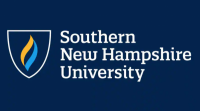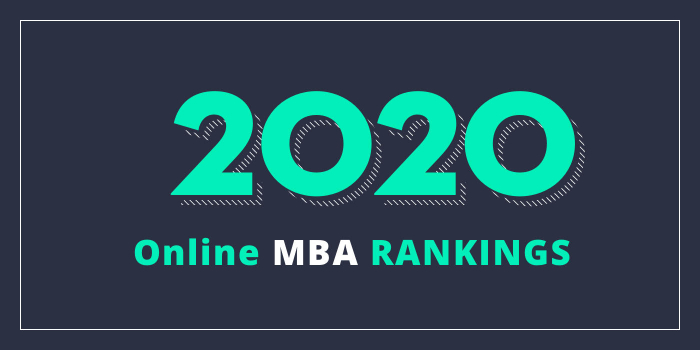
Our 2020 list of the Top 50 Online MBA Programs in the US. For an explanation of ranking criteria, click here.
| Ranking | School | State | % of Schools Considered |
|---|---|---|---|
| 1 | University of North Carolina at Chapel Hill | North Carolina | 1% |
| 2 | Indiana University | Indiana | 1% |
| 3 | University of Florida | Florida | 1% |
| 4 | Arizona State University | Arizona | 1% |
| 5 | University of Southern California | California | 2% |
| 6 | University of Maryland | Maryland | 2% |
| 7 | Pennsylvania State University | Pennsylvania | 2% |
| 8 | University of Texas at Dallas | Texas | 2% |
| 9 | University of Illinois at Urbana-Champaign | Illinois | 2% |
| 10 | University of Arizona | Arizona | 3% |
| 11 | Auburn University | Alabama | 3% |
| 12 | Pepperdine University | California | 3% |
| 13 | North Carolina State University | North Carolina | 3% |
| 14 | University of Massachusetts-Amherst | Massachusetts | 4% |
| 15 | Syracuse University | New York | 4% |
| 16 | Rice University | Texas | 4% |
| 17 | Washington State University | Washington | 4% |
| 18 | Florida State University | Florida | 4% |
| 19 | George Washington University | District of Columbia | 5% |
| 20 | University of Nebraska-Lincoln | Nebraska | 5% |
| 21 | The Georgia WebMBA | Georgia | 5% |
| 22 | Lehigh University | Pennsylvania | 5% |
| 23 | Rutgers University | New Jersey | 6% |
| 24 | Villanova University | Pennsylvania | 6% |
| 25 | University of South Florida | Florida | 6% |
| 26 | University of Wisconsin MBA Consortium | Wisconsin | 6% |
| 27 | Oklahoma State University | Oklahoma | 6% |
| 28 | University of Mississippi | Mississippi | 7% |
| 29 | University of Washington | Washington | 7% |
| 30 | Ball State University | Indiana | 7% |
| 31 | Northeastern University | Massachusetts | 7% |
| 32 | University of Kansas | Kansas | 8% |
| 33 | Louisiana State University | Louisiana | 8% |
| 34 | University of Utah | Utah | 8% |
| 35 | Florida International University | Florida | 8% |
| 36 | University of Cincinnati | Ohio | 8% |
| 37 | Colorado State University | Colorado | 9% |
| 38 | Babson College | Massachusetts | 9% |
| 39 | University of Michigan-Dearborn | Michigan | 9% |
| 40 | Drexel University | Pennsylvania | 9% |
| 41 | University of North Texas | Texas | 10% |
| 42 | Central Michigan University | Michigan | 10% |
| 43 | Temple University | Pennsylvania | 10% |
| 44 | Mississippi State University | Mississippi | 10% |
| 45 | The College of William & Mary | Virginia | 10% |
| 46 | West Texas A&M University | Texas | 11% |
| 47 | Ohio University | Ohio | 11% |
| 48 | University of Massachusetts at Lowell | Massachusetts | 11% |
| 49 | University of Delaware | Delaware | 11% |
| 50 | Creighton University | Nebraska | 12% |

In 1795, University of North Carolina at Chapel Hill (UNC Chapel Hill) became the only public university to award degrees in the 18th century. The School of Commerce was established in 1919 and is known today as Kenan-Flagler Business School. With more than 37,000 graduates working in all states and 80 countries, UNC Kenan-Flagler is considered one of the nation’s top business schools.
The online MBA program at UNC (MBA@UNC) is one of the most recognized and established in the country. The 66 credit hour program allows students to interact with faculty weekly using a face-to-face online platform. Two important components of the program are the MBA@UNC Global Immersions and quarterly three-day immersions. Students are required to attend at least two Global Immersions, which may take them to major business centers around the world such as London, Johannesburg, Singapore, Istanbul, and others.
MBA@UNC students may select from eight concentrations including Corporate Finance, Entrepreneurship, Global Supply Chain Management, Investment Management, Marketing, Sustainable Enterprise, Management Consulting, and Data Analytics and Decision Making. In addition, students may participate in several other programs to gain additional hands-on business and international experience. Optional programs include Student Teams Achieving Results (STAR), the Exchange Program, and Doing Business In (DBI).
STAR students "students learn by doing as they take on the role of consultants to real companies,” says the school, while the Exchange Program “allows MBA@UNC students to study at another top-ranked business school in countries across the globe." Doing Business In (DBI) "gives students an opportunity to study abroad at an MBA exchange partner school."
With four annual start dates, the MBA@UNC can completed in as few as 18 months or as many as 36, depending on the students schedule and other commitments. The program is accredited by the Association to Advance Collegiate Schools of Business (AACSB).
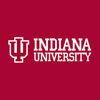
Elinor Ostrom, the first woman to be awarded the Nobel Prize for Economic Sciences, taught at Indiana University (IU) four decades. The school also houses the School of Informatics and Computing—the first technology program in the country to offer a PhD in Informatics—and the world-famous Kinsey Institute for Research in Sex, Gender and Reproduction, originally known as the source of the "Kinsey Reports" in the 1950s.
The Kelley School of Business at Indiana University has been around for more than 100 years. The school has grown from 70 students in 1920 to more than 12,000 students today across 30 programs in Bloomington, Indianapolis, and online worldwide. The school offers a flexible online MBA program that allows students to customize their experience by selecting 12 credit hours of electives to create a specialized area.
Also known as “Kelley Direct Online,” the program offers the opportunity to complete a dual MBA/MS degree with an online MS in Business Analytics, Entrepreneurship & Innovation, Finance, Global Supply Chain Management, IT Management, Marketing or Strategic Management. This may be accomplished with only 12 additional credit hours.
Other unique opportunities for students include AGILE—Accelerating Global Immersion Leadership Education, which allows students to gain international business experience while pursuing their online degree. Offered each quarter, the AGILE curriculum features travel to places such as Gaborone, Botswana; Sao Paolo, Brazil; Beijing, China; New Delhi, India; Yangon, Myanmar, Johannesburg, South Africa, and Havana/Vinales, Cuba.
The AACSB-accredited Kelley Direct Online MBA takes just two years to complete.
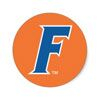
University of Florida (UF) was founded more than 160 years ago. With 56,565 students (fall 2019), UF is the third largest school in Florida and the eighth largest in the U.S. Students at the school utilize more than 200 research, service and education centers, bureaus and institutes, along with more than a dozen colleges and schools.
In 1999, the Warrington College of Business at University of Florida became one of the first schools to offer a fully accredited, 100% online MBA program. The school says the “innovative 24-month option does not require a single campus visit.” The school has two additional options including an Accelerated Online MBA, that allows students to complete the program in just 16 months, and a “two-year option,” which takes 27 months to complete.
Unlike the 24-month program, the accelerated and “two-year” options are offered in hybrid format. This means students will have to attend an on-campus orientation and visit the campus one weekend every four months (Saturday & Sunday). During these visits, students will take final exams and deliver final presentations.
A concurrent Outreach Engineering Management (OEM) Master’s (OEM/MBA) is also available. This degree option “reduces the amount of time and coursework required for students to obtain both the MBA and the OEM degree from UF."
All online MBA students are encouraged to enroll in UF's MBA Global Immersion Experiences (GIE). Students register for the two-credit course that meets in person and online over the course of the semester and includes a seven to 10-day experience abroad in China, Chile, Dubai and others. The Online MBA programs at UF’s Warrington College of Business are AACSB-accredited.
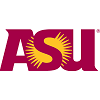
Serving nearly 90,000 students, Arizona State University (ASU) is one of the nation’s largest public universities by enrollment. The school’s nationally ranked programs have positioned the university as a “top-tier” recruiting and hiring institution by more than 50 of the country’s top corporations, according to professional recruiters and rankings services around the world. Among the school’s nationally ranked programs is the MBA, which has an 87.25% employment rate, with a mean salary of $100,303.
Offered through W.P. Carey School of Business, the ASU MBA program has a flexible online option that includes just one meeting at the beginning of the program. This mandatory orientation session allows students to meet W.P. Carey faculty, staff, students, and teammates. After orientation, coursework for the 36 credit hour program may be completed entirely online.
This competitive AACSB-accredited program consists of 49 total credit hours (17 classes) and students are allowed to take just one course at a time (five weeks per course). Students also have the opportunity to customize their MBA by declaring an area of emphasis in Finance, International Business, Marketing, or Supply Chain Management.
Other program highlights include the opportunity to interact with teammates in case-based projects, an inclusive online environment, and the option to earn two degrees in less time and at a lower cost. Concurrent online degree options include the MBA/MSE in Electrical Engineering, the MBA/Master of Legal Studies, and the MBA/MS in Industrial Engineering.
Students in both the single and dual online MBA programs have the option to start in January or August.
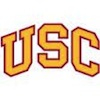
With 48,500 students and a distinguished faculty of 4,000 innovative scholars, researchers, teachers and mentors, University of Southern California (USC) is one of the world’s largest private research universities. The school is also one of the most competitive, admitting just 13% of 64,000 applicant’s.
University of Southern California houses Marshall School of Business. Founded in 1920 as the USC College of Commerce and Business Administration, USC Marshall is the oldest AACSB-accredited school of business in Southern California. The online MBA program here “weaves the fundamental topics of business education – marketing, finance, entrepreneurship, and others – into hands-on exercises and real-world discussions,” says the school.
Students will complete the program via multiple delivery methods including interactive games, virtual learning exercises, group video conferences and class sessions led by instructors, and one-on-one faculty discussions via webcam. Video content and presentations produced at the USC Marshall dedicated studio are also highlighted, as well as case studies and dramatizations of real-world business scenarios, and collaborative video activities and assessments.
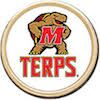
Founded in 1856, University of Maryland (UMD) is the flagship campus of the University System of Maryland. UMD is the original land-grant institution in the state and it is one of only 62 members of the Association of American Universities, an organization composed of the leading research universities in the United States and Canada.
Serving 41,000 students and employing 14,000 faculty and staff members, University of Maryland has 350,000 alumni including famous graduates such as Co-founder of Google, Sergey Brin, Jim Henson, founder of The Muppets, and Seinfeld co-writer, Larry David.
The school also houses Robert H. Smith School of Business (est. 1920), which offers an AACSB-accredited online MBA program with six career-focused specializations. Options include Accounting, General Track, Finance, Information Systems and Business Analytics, Marketing, and Supply Chain Management. The program is largely asynchronous, which allows students to continue to meet personal and professional obligations during their course of study.
The school says “a small number of live online classes presented via the state-of-the-art video conferencing tool, Adobe Connect, provide the benefit of “attending” class and interacting with professors and peers in real time.” Students will also benefit from audio and video messaging, integrated multimedia, collaborative online workspaces, and career coaching. Smith’s Office of Career Services (OCS) takes students through “a phased approach” to creating their “core career portfolio, complemented with next-level learning and capstone experiences.” This entire career development protocol repeats each year so students can “get what [they] need when [they] need it.”
The UMD Smith Online MBA may be completed in as few as 24 months, while still providing “the same academic rigor and top faculty” as is offered in the campus-based programs.

Pennsylvania State University (Penn State or PSU) serves 100,000 students and 17,000 faculty and staff across 24 campuses and in 20 colleges and schools. As Pennsylvania's only land-grant university, Penn State has a broad mission of teaching, research, and public service.
The school houses the Smeal College of Business, which offers 1300+ internship and co-op opportunities annually, 300+ career fairs and corporate recruiting events each year, and a 94% placement rate for MBAs within three months of graduation. The online MBA here is led by the Smeal College of Business, in partnership with Black School of Business, Penn State Behrend; Penn State Great Valley School of Graduate Professional Studies; and Penn State Harrisburg School of Business Administration. This AACSB-accredited program consists of 48 credit hours, which includes 39 General Management credits and nine credits of concentration work.
Core coursework prepares students to become “more effective business professionals,” says the school, “by exposing them to the principles and practices essential to modern management,” including accounting, economics, data analysis, ethics, communications, human resources, finance, marketing, leadership, supply chain, strategy, innovation, and digital transformation.
Concentration options include Accounting Foundations, Advanced Accounting, Business Analytics, Corporate Innovation and Entrepreneurship, Finance, General Management, Human Resource Management, Marketing Analytics, Project Management, and Supply Chain Management. The MBA program runs on the Penn State semester System, so in addition to a declaring a concentration, students can take advantage of other Penn State online graduate degree and certificate courses and programs.
At the start of the Penn State Online MBA Program, students must attend a five-day Orientation Residency held at University Park, Pennsylvania. The orientation is designed to “acquaint” students “with aspects of the program in a face-to-face environment.” Students will meet their instructors and student peers, “immerse” in a team performance class while earning credit, and attend workshops covering student advising services, career management, stress management, alumni relations and networking, time management, and online technology.
Other Orientation Residency highlights include Keynote Speakers and the opportunity to “connect with the Penn State community through campus tours end events.”
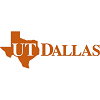
Since 1969, University of Texas at Dallas (UT Dallas) has grown from one building in a field into a top-tier university serving more than 29,500 students enrolled in eight schools and more than 140 academic degrees including top-ranked programs in business, engineering, science, audiology and arts and technology.
Naveen Jindal School of Management (JSOM) is the largest of UT Dallas’ eight schools. It houses the Professional MBA (PMBA) Online, which allows students up to 72 months to complete the program. Students also have the option to complete the program in as few as 16 months. There are no on-campus requirements and students have full access to MBA Program Office and Jindal School Career Management Center staff.
This AACSB-accredited program utilizes "streaming audio lectures, video clips, online exams, online submission of assignments, and interactivity for group projects using discussion forums, email, and web conferencing," says the school. The 53 credit hour online PMBA also highlights 24 hours of electives, along with an impressive 13 double MS/MBA options, including STEM, and 15 concentrations. Just a few concentration options include Accounting, Information Systems, Innovation and Entrepreneurship, Marketing, Real Estate, and Supply Chain Management.
In addition to STEM, MS options include Healthcare Leadership and Management, Innovation & Entrepreneurship and International Management Studies, to name a few.
All JSOM Online PMBA students are encouraged to participate in the school's International Study Programs, which "give direct exposure to business in a global context." Besides offering Exchange Programs and International Internships, the JSOM Study Abroad Office has conducted more than 35 faculty led international study trips in 16 countries for the past 15 years.
Jindal School of Management also offers a Professional MBA Flex that allows students to take classes on a part-time basis, usually six semester credit hours (two courses) per semester.

Founded as Illinois Industrial University in 1867, the University of Illinois at Urbana-Champaign (U of I Urbana-Champaign) is one of the original 37 public land-grant institutions created after President Abraham Lincoln signed the Morrill Act in 1862. It is the oldest and largest campus in the University of Illinois system, with 18 colleges that offer more than 150 programs of study.
Among the colleges at U of I Urbana-Champaign is Gies College of Business. Established more than 100 years ago, the college serves more than 6,000 business students each year, with half enrolled in graduate programs, including GCB’s fully online MBA (iMBA).
Seven specializations are available and include Digital Marketing, Financial Management, Global Challenges in Business, Innovation: From Creativity to Entrepreneurship, Managerial Economics and Business Analysis, Strategic Leadership & Management, and Value Chain Management. Students must complete at least six specializations and a program-wide experiential learning course.
“Specializations ultimately come together as a capstone project and lead to the complete iMBA,” says the school. Students will also choose two of three advanced-leadership pathways, including Digitization, Globalization and Innovation.
Learning takes place through Coursera and through the University. The part of the curriculum in the Coursera platform is on demand, so students can complete it at their own pace. Other program highlights include hands-on faculty, interactive in classes and projects, and weekly live class sessions, covering multiple time zones across the world. Students live in more than 50 different countries.
Another highlight of this AACSB-accredited program is job placement. According to The Wall Street Journal, the University of Illinois is among corporate recruiters’ top five places to recruit talent. Just a few firms with University of Illinois roots include YouTube, PayPal, and Yelp.
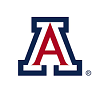
Established in 1885, University of Arizona (UA) was the first university in Arizona Territory. The school’s first graduating class in 1895 consisted of just two women and one male. Today, UA serves close to 46,000 students enrolled in 300 undergraduate and graduate degrees through 20 colleges and 12 schools on four campuses.
Eller College of Management is one of the 20 colleges at University of Arizona. The college serves nearly 6,500 students enrolled in 10 undergraduate majors and 16 graduate programs, including a 100% online MBA that may be completed in as few as 14 months. With six starts per year (every eight weeks), the program requires 14 core two-unit courses and 17 units of electives for a total of 45 units to graduate. Six concentrations are available including Entrepreneurship, Health Care, Finance, Management and Organizations, Management Information Systems, and Marketing.
Also known as the OMBA, the Eller Online MBA highlights 24/7 asynchronous delivery of content that minimizes students’ time away from work and family, the option to decide how many courses to take at a time (take up to six years to complete the program), and AACSB accreditation. Graduates of the program enjoy an 86% employment rate within 90 days of graduation, along with an average starting salary of $89,870. Top recruiters include General Motors, Goldman Sachs, Intel, Honeywell, Macy’s, Microsoft, Nationwide, and PwC.
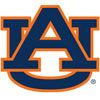
Auburn University was chartered in 1856 as East Alabama Male College—a Methodist institution. Beginning with EAMC, the school has had four official names: Agricultural and Mechanical College of Alabama, Alabama Polytechnic Institute, and Auburn University. Classes were first held for 80 students with a faculty of six in 1859. Today, the school serves approximately 29,776 students enrolled in 140 programs within 13 colleges and schools.
The Raymond J. Harbert College of Business, which has grown an impressive 50% over the last seven years, offers a video-based Distance MBA that may be completed in 2.5 years, part-time. The 36 credit hour program offers an optional three-day orientation at the beginning of the program and a three-day on campus residency on the Wednesday, Thursday, and Friday before graduation. Otherwise, all coursework for the program is delivered through the University's online student learning platform CANVAS.
Students use CANVAS to view lectures, work with team members on group assignments, ask questions and hold discussions with professors and classmates, submit homework, and access course materials. The lock-step curriculum allows online students to watch the exact same lectures, take the same tests, and communicate with the same professors as on-campus students.
Students can live-stream classes or choose to watch at the time most convenient for them. Courses are taken at the student’s own pace, with most online students taking one or two classes each semester. The curriculum includes a mix of core business classes and business electives and the final semester includes the Capstone Course, where groups of MBA students provide consultation to a number of real businesses on various topics.
In addition to optional concentrations in Finance, Marketing, Management, Information Systems, Supply Chain, Business Analytics and Human Resource Management, this AACSB-accredited program offers dual degrees (MBA/MS) in Finance, Information Systems, and Industrial and Systems Engineering. Graduate research assistantships, which are awarded annually, are also available.
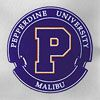
Pepperdine University is a Christian University founded by entrepreneur George Pepperdine in South Los Angeles in 1937. The school expanded to Malibu in 1972, and now serves 8,000 full-time and part-time students, with a full-time faculty of more than 300 professors and scholars. The school has five separate graduate and undergraduate schools offering 73 degree programs.
Founded in 1969, the Graziadio School of Business and Management offers online degree programs across six California campuses, including Malibu and Silicon Beach. The online MBA program here focuses on building “essential business knowledge in areas such as finance, marketing, accounting, economics, quantitative analysis, law, human behavior, information systems, strategy, management, and leadership,” says the school. Students in this AACSB-accredited program will build “business intelligence” as they “examine business from a global perspective and address the impact of globalization, competition, technological innovation, and ethics in the workplace.”
Students in this 52 credit hour program will “do more than read case studies about top brands, such as Disney, Starbucks, and Warner Bros.” Students “will actually work” with top executives on” live consulting projects” to “solve real-time challenges.”
Other program highlights include the Personal and Leadership Development Workshop residency, which takes place at the schools’ coastal Malibu campus, Global Business Intensives, which cover relevant topics such as international economics, culture, marketing, finance, and business law, and five in-demand concentration options including Digital Innovation and Information Systems, Finance, General Management, Leadership and Managing Organizational Change, and Marketing. An optional international residency that allows students to explore global issues and work with international experts to understand foreign markets is also available.
Graziadio Online MBA students can complete the program, with a concentration, in as few as 24 months.
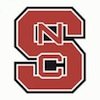
North Carolina State University (NC State) held its first classes in the fall of 1889 with 72 students, six faculty members and one building. Today, NC State is the largest of the 16 higher-education institutions in the University of North Carolina system, with over 2,000 faculty members, an administrative and support staff of more than 5,500, and a current enrollment of nearly 25,000 undergraduates and 9,000 graduate students from across the state and around the world. Through its 11 colleges, North Carolina State University offers more than 100 undergraduate programs, 100+ master’s programs, 60+ doctoral programs, and a Doctor of Veterinary Medicine program.
The school’s most popular majors are Engineering; Business, Management, Marketing, and Related Support Services; Biological and Biomedical Sciences; Agriculture, Agriculture Operations, and Related Sciences; and Communication, Journalism, and Related Programs.
Founded in 1992 and serving more than 3,500 students, Poole College of Management at NC State offers a 40 credit hour Professional Online MBA that has six “Depth Areas” comprised of the same functional area options as concentrations, but with fewer credit hours required to graduate. Known as the “Jenkins MBA,” areas for the program include Biosciences Management, Entrepreneurship & Technology Commercialization, Financial Management, Innovation Management, Marketing Management, and Supply Chain Management. This AACSB-accredited program also offers the opportunity to earn Decision Analytics or SAP Certification. SAP is the world's largest enterprise applications software company, with a wide range of software used by more than 38,000 firms in over 120 countries.
Students in the Jenkins Online MBA program may choose the Accelerated Path, which takes as few as 21 months to complete, or the Flexible Path, which allows students to complete their degree in as little as 21 months or up to six years. Both pathways allow students to interact with one another and instructors through WolfWare, NC State’s online learning management system featuring educational tools such as Moodle, email, streaming video files, discussion boards (message boards, instant messaging, etc.), and telephone conferencing.
The Jenkins Online MBA requires two three-day residencies on NC State’s main campus in Raleigh. In addition, students are encouraged to complete an optional International Immersion that lasts for seven to eight days. Per the school, “the focus of the trip is to provide global business and cultural awareness skills.” For 2019, travel experiences include France: MBA, Art & Science of Negotiation in Paris and Germany: MBA, Innovation & Marketing Systems in Munich.
Study abroad trips take place during the Spring and Summer semesters, (usually mid-March or mid-May).
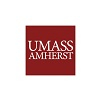
University of Massachusetts-Amherst (UMass-Amherst) houses the tallest research library on any college campus in the country and the second tallest library in the world. At 28 stories, Du Bois Library is home to thousands of books and other resources on any subject. In addition to Du Bois, UMass houses Isenberg School of Management, which opened its doors in 1947 with just 10 faculty members and 15 students. Today, the school has a faculty of 133 educators and 124 staff-members serving more than 5,300 students.
Isenberg School of Management offers a 45 credit hour online MBA that offers six focus areas including Business Analytics, Entrepreneurship, Finance, Healthcare Administration, Marketing, and Sport Management. Fully accredited by the AACSB, the Isenberg MBA also offers a unique opportunity for students to “try before you buy.” Potential MBA students can take up to two classes before applying to learn why the program is a good fit.
Besides several focus areas and the opportunity to experience the program before committing, students have an additional delivery option available to them. The Blended Option Part-Time MBA allows students to take some classes online and others at a conveniently located satellite campus in Boston, Shrewsbury, or Springfield, Massachusetts.
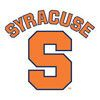
Founded in 1870, Syracuse University is a private, coeducational, research institution located in the heart of Central New York. Additional centers are located in New York City, Washington D.C., and Los Angeles, and study abroad programs are available in 60 countries throughout the world. Students can choose from more than 200 majors, 100 minors, and 200 advanced degree programs across Syracuse’s 13 academic units.
In addition to offering a large number of degree and study abroad programs, Syracuse University has more than 30 research centers and institutes spanning disciplines from performance, design, fine arts, and humanities to information, health, social sciences, and STEM (Science, Technology, Engineering, and Mathematics) fields.
The Martin J. Whitman School of Management at Syracuse University offers a 54 credit hour online MBA known as MBA@Syracuse. The program consists of 36 credits of core business courses, 15 credits of specialization-focused electives, and three credits of U.S. and global residencies. Students may choose from six optional specializations including Accounting, Business Analytics, Entrepreneurship, Finance, Marketing Management, or Supply Chain Management.
This AACSB-accredited program combines “live online classes led by Syracuse University faculty, self-paced coursework, and hands-on learning through domestic and international residencies,” says the school. While coursework for the MBA program may be completed entirely online, all students will participate in “three day-long residencies in cities around the world.” The school says that these hands-on experiences are structured like businesses conferences.
Students will listen to local speakers who host “relevant discussions and interactive panels,” meet with classmates for socializing, and engage with professor’s fact-to-face for workshops and networking. For 2019, residencies take place in Hong Kong and Syracuse. Last year, students traveled to Dublin, Ireland to study “the industry-leading innovation” taking place there.
The MBA@Syracuse, including residencies, can be completed in as few as two years.

On May 18, 1891, Massachusetts-born businessman William Marsh Rice chartered the William Marsh Rice Institute for the Advancement of Literature, Science and Art as a gift to the city of Houston, where he made his fortune. In 1907, astronomer and mathematician Edgar Odell Lovett became the first president of Rice. In 1912, the Rice Institute finally opened with 77 students taught by a dozen faculty. Today, Rice University serves 7,170 students taught by 694 full-time and 192 part-time instructional faculty. More than 50 undergraduate majors and dozens of graduate programs in eight schools.
The Jesse H. Jones Graduate School of Business at Rice University offers an AACSB-accredited online MBA program known as the MBA@Rice. Program highlights include live virtual classes, small class sizes, and mobile-friendly, multimedia coursework. The program, which has four focus areas including Corporate Finance, Corporate Strategy, Investment Management, and Marketing, develops students’ understanding of “essential business principles such as financial accounting, business analytics, marketing strategy, leadership and finance,” says the school. Students will “learn to apply these larger concepts throughout an organization” as they hone their skills in one of the focused specializations of study.
In each 10-week term, students will take courses totaling up to six credits. The first year will consist of all core courses, and the second year features a combination of core and elective courses. Sample courses include Business-Government Relations, Competitive Strategy, Corporate Investment Policy, Corporate Responsibility, Economic Environment of Business, Geopolitics of Energy, Futures and Options, Leadership, and Negotiations.
Students must complete 54 total credits including 36 core credits, 12 elective credits, three credits of Residential Intensive Learning Experiences (ILEs) and three additional credits of electives or ILEs. ILEs consist of a variety of simulations, immersions, seminars, intersessions, and guided leadership exercises that bring students face to face with peers, faculty and industry leaders.” Domestic ILEs are often held on the Rice University campus in Houston, Texas.
Global Field Experiences (GFEs) are also part of the program, which allow students to study abroad and to develop and practice new hands-on skills.
Exams for the MBA@Rice are held during the final week of each semester and the program can be completed in 24 months.
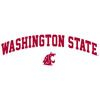
In 2015, Washington State University (WSU) celebrated its 125th birthday. Established in 1890, the school began as Washington State Agricultural College and School of Sciences. The name changed to State College of Washington in 1905, and finally, to Washington State University in 1959. The school serves around 21,000 students from 48 states and 106 countries, it offers more than 500 study abroad programs in over 48 countries, it houses more than 330 registered student organizations, and it offers hundreds of academic programs in 11 colleges.
The Carson College of Business at WSU offers a 36 credit hour online MBA with four concentrations and a General Track. Concentrations include Marketing, Finance, International Business, and Hospitality Business Management. The program may be completed in as few as 22-29 months and the GMAT is not required for qualified applicants.
Two major highlights of the program are the optional international field study and the option to earn a nine-credit graduate certificate upon completion of any concentration. For 2020, the international field study option offers the opportunity to travel to Prague. Students will learn from local professors and experts, meet classmates in person, and network with professionals outside the U.S., helping students build confidence to venture into overseas markets after graduation. A wide range of topics specific Prague will be covered, in addition to tours of cultural landmarks.
The Carson online MBA experience closes with three capstone courses for an additional six credits. All coursework is entirely online and may be completed in as few as 22-29 months.
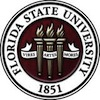
Founded in 1851, Florida State University (FSU) is the oldest continuous site of higher education in Florida. It is also one of the largest universities in the state serving 41,717 students from every Florida county and 131 countries. With notable alumni such as Burt Reynolds, members of the New York Yankees, and over twenty current and former generals and admirals in the U.S. military, FSU has a network of more than 360,000 alumni from Florida and around the world.
The College of Business at FSU (COB FSU) serves more than 6,000 students enrolled in dozens of bachelor’s, master’s and doctoral degree programs. The school offers two online MBA programs: the Part-Time MBA and the Part-Time MBA with a Real Estate Specialization. The 39 credit hour Part-Time MBA offers a General Track or a specialization in Management Information Systems or Risk Management and Insurance. The program may be completed in two to 2.5 years or seven semesters.
Online MBA students may participate in the Global Business Seminar for Graduate Students, which provides the opportunity to study abroad in Seoul, South Korea at firms such as Samsung Electronics, Hyundai, Kia and LG. The program, which also features several cultural excursions, focuses on the "globalization and sustainability of Korean multinational firms," says the school.
The Part-Time MBA with a Real Estate Specialization also consists of 39 credit hours and features a “rigorous set of elective courses focused on real estate and analysis.” The program, which also offers a study abroad option, may be completed in two to 2.5 years. As part of the FSU College of Business, both the Part-Time MBA and Part-Time MBA-Real Estate are AACSB-accredited.
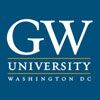
Founded in 1821 and serving more than 26,000 students, George Washington University (GW) is the largest higher education institution in DC. The school offers hundreds of programs in 14 schools and colleges. In addition to these programs. GW offers more than 100 online programs in 12 areas, including business.
The School of Business at George Washington University offers an Online Traditional or Healthcare MBA that may be completed in just two years and up to five. Both programs require 55.5 total credit hours of study including 28.5 credit hours of core courses and 27 credit hours of elective courses for the Traditional MBA, and 31.5 credit hours of core courses, 12 healthcare electives, and 12 general electives for the Healthcare MBA.
The Healthcare MBA is delivered 100% online (or hybrid) and features specialized electives such as Service Line and Project Management, Managing the Skilled Nursing Facility, and Physician Practice Management. Designed for professionals on the path to becoming Health Care Managers, Administrators, and Executives, the program also offers the option to complete one of seven graduate certificates offered by the George Washington University School of Medicine and Health Sciences as part of the curriculum. Clinical Research Administration, Integrative Medicine, and Regulatory Affairs are just a few options.
The Traditional MBA option may be completed 100% online or in hybrid format. The program offers optional concentrations in Consulting, Finance, Global Management, Government Contracts, Information Systems & Technology Management, and Project Management. Students may choose up to two concentrations or they may customize their electives to create their own focus area. Electives may be chosen from the schools of Business, Health Sciences, Public Health, Law, and more. Elective courses may also serve to add a graduate certificate to this Traditional MBA.
The GW Online MBA curriculum also includes Business and Society (a required 1.5 credit on-site residency course in Washington, DC) and a 1.5 credit Information Systems and Technology Management selective course. Students are offered nine opportunities to complete the on-site course, which offers a firsthand look through visits to the Federal Reserve, the US Congress, and the World Bank.
Both AACSB-accredited programs offer three start times (August, January, or May), and optional short-term study abroad opportunities in places such as Denmark, Israel, Mexico, and many others.
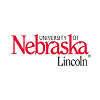
Founded on February 15, 1869, University of Nebraska–Lincoln (UNL) a member of the Big Ten Conference and the Big Ten Academic Alliance and the school is classified within the Carnegie “R1: Doctoral Universities – Highest Research Activity” category. Nebraska is also a land-grant university and a member of the Association of Public and Land-grant Universities (APLU).
Serving 25,390 students, University of Nebraska-Lincoln 150+ undergraduate majors, 69 doctoral degree programs, seven master's degree programs and 33 graduate certificates in all areas. Among them is business—one of the school’s most popular programs.
The College of Business offers a variety of flexible pathways to the coveted MBA. The College of Business here offers a traditional MBA, and a 48 credit hour MBA that’s delivered entirely online. The school also offers a Flex MBA program, which is a blend of both on-campus and online courses. However, the majority of courses are taken on-campus at the “renowned” Howard L. Hawks Hall, which opened in 2017.
For the 100% online MBA program known as MBA@Nebraska, students “will never have to come to campus, which makes this option the most flexible” of the school’s three MBA programs, says the school. The program includes 10 core classes (30 hours), nine hours of breadth electives, and nine hours of electives, for a total of 48 credit hours. Specialization options include Business Analytics, Finance, International Business, Marketing and Supply Chain Management. Online graduate certificates are also available in Business Analytics, Financial Communications, Human Resource Management, and Supply Chain Management.
In addition to the option to choose a specialization or certificate, MBA@Nebraska students are expected to participate in an internship. “Internships are designed to give students practical experience in managerial and/or administrative situations.” Students can participate in a maximum of two internships and earn three hours of elective credit for each internship, for a maximum of six hours.
Start times for the MBA@Nebraska program are January, March, June, August or October of each year. The average completion time for the program is three years, but it is possible to complete it in 1.5 years. However, students are allowed up to 10 years to complete this AACSB-accredited program.

Established in 2001, the Georgia WebMBA is jointly offered by seven University System of Georgia Schools including Augusta University, Columbus State University, Georgia College & State University, Georgia Southern University, Kennesaw State University, University of West Georgia, and Valdosta State University.
Designed for professionals who want to earn their MBA without the restrictions of set class times and locations, the program requires just one onsite two-day orientation in Atlanta. After this, all required activities are exclusively online. However, Georgia WebMBA students have access to the same services as participants in other Coles MBA Programs, including career services, on-campus events, and networking opportunities.
This AACSB-accredited program relies primarily on virtual team-based learning. This unique cohort structure “promotes efficient student interactions, peer-to-peer learning, and long-lasting relationships,” says the school. Course highlights include Global & International Business, Entrepreneurship, Managerial Decision Analysis, Strategic Marketing, Management Information Systems, and Human Behavior in Organization, to name a few.
Georgia WebMBA students have the option to complete the program in five consecutive semesters within a year and a half. This accelerated option allows students to begin the program in January or August and complete two online courses each term. Otherwise, the program typically takes around 20 months to complete.

Lehigh University is a small, private research university that serves close to 7,000 students. Founded in 1865 by industrial pioneer, entrepreneur, and philanthropist Asa Packer, Lehigh University offers more than 100 majors, minors and programs across four colleges.
The College of Business and Economics at Lehigh University offers a 100% online Flex MBA. This 36 credit hour program highlights global business concepts and analysis, cultural intelligence, organizational leadership, sustainability, crisis management resolutions, social consciousness issues, ethical decision-making, and optional business consulting projects. While the program does not offer any concentrations, students may earn a Professional Certificate in Corporate Entrepreneurship in addition to the MBA. The certificate is offered through VENTURESeries, which the school describes as a “one-of-a-kind executive certificate program that focuses squarely on new venture creation.”
Another option, the 45 credit hour MBA & Engineering program, is offered through the College of Business and Economics and the P.C. Rossin College of Engineering and Applied Sciences. This unique program is designed for students with an undergraduate degree in engineering. Classes for the program can be taken both on campus and online. MBA & E concentrations include Chemical Engineering, Manufacturing Systems Engineering, and Mechanical Engineering. Upon completion of the MBA & E Program, students receive an MBA degree with a concentration in their chosen area. Both programs are AACSB-accredited.
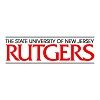
Chartered in 1766 as all-male Queen's College in New Brunswick, New Jersey, Rutgers is the eighth oldest institution of higher learning in the United States. Known as the Birthplace of College Football, Rutgers serves around 70,000 students, making it one of the nation’s largest schools. More than 150 undergraduate programs and over 200 graduate programs of study are offered through 29 schools and colleges.
Rutgers Business School offers an MBA program that is delivered entirely online. Students may attend classes year-round, full or part-time, and they may choose from Fall, Spring, and Summer starting points. Students are “learning in real-time about challenges and solutions that cross disciplines,” says the school. The Rutgers MBA curriculum “focuses on the key areas of business and offers an extensive selection of elective courses that cover every avenue of modern business including marketing, finance, IT, and human resources.”
More than 250 MBA students have the opportunity to travel abroad to satisfy one, three-credit elective requirement. Those who choose the study abroad option will be given the opportunity to meet with top executives and solve real-life international business challenges. There will also be an opportunity to experience cultural activities on the weekends and evenings. Past study abroad destinations include Brazil, China, Panama, South Korea, Taiwan, and Turkey.
Graduates of the AACSB-accredited Rutgers MBA program will learn to “make knowledgeable decisions and become a respected leader, increase their influence by employing management skills to guide their teams and companies, better analyze problems and clearly articulate effective solutions, and expand their network and connect with notable Rutgers alumni, classmates, and faculty.”
Other program highlights include small class sizes, learning tools and tutoring, access to student coaches and advisors, a 169% return on investment, and Focused Learning Modules that allow students to “build expertise” in their career area. Modules include Business Analytics, Digital Marketing, Investments & Private Wealth Management, and Strategic Leadership.
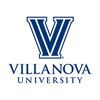
Villanova University is a Roman Catholic institution of higher learning founded by the Order of Saint Augustine in 1842. Serving nearly 11,000 students, the school offers 47 majors, 14 bachelor’s/master’s programs, 24 master’s programs, 42 certificate programs, and PhD programs in Philosophy and Theology.
Villanova School of Business (VSB) offers seven of these majors, three co-majors, and nine minors at the undergraduate level, along with seven master’s programs, a Joint JD/MBA with Villanova School of Law, and a Post-MBA certificate to around 1,740 undergraduates and around 1,070 graduate students. With five academic departments, the school offers an MBA program that boasts a 25% average salary raise for students.
The program is the “very same” program as the on-campus Villanova MBA, says the school.
The curriculum includes courses that will expand students’ “essential business knowledge with a focus on innovative and applied concepts, real-world immersion experiences and peer-to-peer learning.” Program highlights include small classes (approximately 20 students per online section), live weekly sessions, and two residency opportunities, which foster “a strong learning community among faculty and students.” Students may also participate in an optional international immersion into an emerging economy.
Students in the VSB Online MBA can begin the 48 credit hour (21 course) program in the fall, spring or summer semester. The curriculum is comprised of fundamental, core, pillar, elective and capstone classes, and students may choose up to two specializations from five areas including Analytics, Finance, International Business, Marketing, and Strategic Management.
Semesters for this AACSB-accredited program are divided into two sessions, each of which is eight weeks in the fall and spring and seven weeks in the summer. Students in the program progress through the curriculum, typically taking one or two courses per session. The VSB Online MBA can completed in just two years.
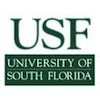
The University of South Florida serves more than 50,000 students at its institutions in Tampa, St. Petersburg, and Sarasota-Manatee. The school is the fourth largest public research university in Florida and one of the largest in the U.S. Students choose from 180 majors and degree programs at the graduate, specialist and doctoral levels, in 14 colleges.
The Kate Tiedemann College of Business at University of South Florida St. Petersburg (KTCOB USFSP) offers an AACSB-accredited MBA Program that may be completed entirely online. “From application to graduation,” says the school “fully online students never have to come to campus if they so choose.” Online courses are taught in “compact” eight-week sessions, which allow part-time students to enroll in one course at a time.
Online MBA students have the option to pursue the Global MBA Track, which requires a Study Abroad Course. Students may opt for one of seven other unique Focus Tracks including Cybersecurity, Data Analytics, Healthcare Analytics, or Compliance, Risk and Anti-Money Laundering.
Full-time students can complete the 33 credit hour online MBA in just four semesters if waived from the foundation courses. Part-time students can complete all work within a reasonable time as well – approximately three years.
Recent University of South Florida St. Petersburg MBA graduates are employed at international companies as well as in positions at Florida’s top corporations, including Raymond James, Franklin Templeton, Wells Fargo, Nielsen, and Jabil.

Serving approximately 170,000 students each year at 13 universities across 26 campuses, the University of Wisconsin System (UW) is one of the largest systems of public higher education in the nation. Through its statewide extension and outreach programs, the system also serves more than one million citizens.
Three campuses—UW-Eau Claire, UW-La Crosse, and UW-Oshkosh—have joined forces to create the University of Wisconsin MBA Consortium.
This AACSB-accredited pathway is the only offering among UW’s peer consortial programs to grant the degree from the MBA Consortium Program rather than from one of the partner schools. The program curriculum “combines four credits of business essentials courses, 22 credits of core courses, and ten credits of electives to cover general business competencies,” says the school, “while enabling” students to design a customized learning experience based on their individual interests.
Through electives, students may focus in a specific area or two, without officially declaring an emphasis/concentration. Elective course highlights include Mutual Fund Investing, Incorporation of Exchange Rates in Strategic Decision-Making, Regional Trade Agreements and Multinational Corporations, Corporate Venturing, Managing Technology in Turbulent Times, Sustainability and Organizational Management and Introduction to Enterprise Resource Planning.
Other course highlights for the MBA Consortium Program include Leading a Diverse and Dynamic Workforce, Developing New Products and Services, Competing Strategically in a Global Environment, and Navigating Change amid Uncertainty. Students will also complete a capstone (Refining Your Plan for Success) at the end of the program. Coursework for the program may be completed entirely online—no campus visits required.
Graduates will be able to “demonstrate the knowledge and skills necessary to be effective leaders” who can lead a diverse and inclusive organization, identify and evaluate market opportunity, use critical thinking and analytical reasoning to make informed business decisions, and create and maintain a dynamic vision for personal and professional development in a global and domestic context.
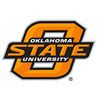
Oklahoma State University (OSU) is Oklahoma’s first Truman Honor Institution. The school has the largest comprehensive student union and its Edmon Low Library is one of the America’s top 100 academic research libraries. Famous alumni include Garth Brooks, T. Boone Pickens (business magnate and financier), Barry Sanders (NFL running back), and Anita Hill.
Serving nearly 27,000 students, Oklahoma State University houses six academic colleges, plus a veterinary school and an osteopathic medical school, that offer 200 undergraduate majors and options, 79 master's programs, and 45 doctoral programs.
Watson Graduate School of Management houses Spears School of Business, which offers several MBA programs—a 42 credit hour part-time MBA, a 43 credit hour full-time MBA, and a new MBA in Entrepreneurship (formerly the Master’s in Entrepreneurship). Concentrations for the 42 and 43 credit hour programs include Business Sustainability, Data Science, Energy Business, Global Marketing, Human Resource Management, Information Assurance, Marketing Analytics, and Non-Profit Management.
Students in these AACSB-accredited programs also have the option to earn the SAS and OSU Marketing Analytics Certificate. The program is designed to “produce analytically-savvy managers who will be adept at leading teams of IT, Marketing, and Strategy personnel in any organization to solve complex business problems by analyzing appropriate data,” says the school. The curriculum for the program was “designed in partnership with SAS, a leading provider of marketing analytics software and services.”
Both the part-time and full-time Spears OSU MBA programs may be completed online or in hybrid format.
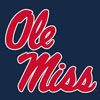
Chartered on February 24, 1844, University of Mississippi (Ole Miss or UM) is Mississippi's flagship university. The school opened its doors in 1848 to just 80 students. For the next 23 years, UM was Mississippi’s only public institution of higher learning, and for 110 years, it was the state’s only comprehensive university. Today, UM serves more than 24,000 students enrolled in hundreds of programs in 15 academic divisions including a major medical school, nationally recognized schools of accountancy, law and pharmacy, and the Sally McDonnell Barksdale Honors College, renowned for a blend of academic rigor, experiential learning, and opportunities for community action.
The School of Business Administration at the University of Mississippi offers a 36 credit hour Online Professional MBA that can be completed in as few as two years. The program “employs a fully supported online learning system integrated with features such as video conferencing, interactive discussions and similar collaborative technologies necessary for effective online instruction,” says the school. Course titles range from Managerial Accounting and Organizational Behavior to Contemporary Business Analysis and Mobilizing Technology.
The Ole Miss Online MBA is AACSB-accredited.
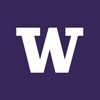
The University of Washington’s three campuses (Seattle, Bothell, and Tacoma) offer more than 613 degree options across 312 programs to a student body of more than 59,000. The Michael G. Foster School of Business at University of Washington (UW Foster) offers a hybrid MBA program that can be completed mostly online. This two-year, interactive program is the first of its kind offered by Foster and it allows students to complete 95% of the program online and 5% on campus. Course highlights for the 62 credit hour program include Business Analytics, Competitive Strategy, Domestic & International Economic Conditions, Decision Modeling, Digital Marketing Strategies & Systems, Foundations of Entrepreneurship, Global Strategy, and Leading Organizational Change.
Other program highlights include support through workshops, training, and coaching sessions, the opportunity to meet with faculty and peers each quarter for networking, and the opportunity to attend networking events with employers on the UW campus.
The Foster School of Business is AACSB-accredited.

As of Fall 2019, Ball State University (BSU) offered the lowest tuition in the Mid-American Conference. With more than 22,500 students and 197,000 alumni worldwide, the school also welcomed its largest freshman class in the University’s 101-year history in Fall 2019.
The Miller College of Business at Ball State University offers an online MBA program that may be completed in as few as two years. The Miller MBA includes 24 credits of core courses and 6-nine credits of MBA electives “covering in-depth knowledge of entrepreneurship, finance, management, marketing, sales, and more,” says the school.
This AACSB-accredited program offers five optional concentrations including Entrepreneurship, Finance, Health Economics, Policy, and Administration, Logistics and Supply Chain Management, and Sales Management. An additional option is the General MBA, which allows students to customize their experience through a variety of course subjects.
Miller Online MBA students will complete coursework for the program through a combination of asynchronous (no specific sign-on time each week) and synchronous (specific time to watch and participate in live webcast lectures and discussions) formats. Students will “keep in contact with instructors and classmates using e-mail, discussion boards, file sharing, chats, web page posting, and possibly over the telephone.”
Miller College of Business offers an additional delivery format option designed for students who prefer a combination of online and on-campus classes. The Hybrid MBA allows students to choose which classes they would like to take on-campus and which ones they prefer to complete online. Most students (in either program) enroll in an average of two courses each semester and typically complete the program in five to six semesters. Three start times are available including Fall, Spring, and Summer.
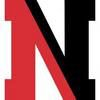
Northeastern University has campuses in Boston, Charlotte, the San Francisco Bay Area, Vancouver, Seattle, and Toronto—all designed to “expand learning and research opportunities to meet regional and global demand for talent and innovation,” says the school.
Serving more than 5,500 students, Northeastern University’s D'Amore-McKim School of Business offers an AACSB-accredited online MBA program that can be completed 100% online in as few as two years. Coursework for the 50 credit hour program is divided into 13 core courses and five electives. Eight in-demand specialization options are offered including Finance, Healthcare Management, High Technology Management, Innovation Entrepreneurship, International Management, Marketing, Supply Chain Management, and Sustainability.
D'Amore-McKim Online MBA students also have the option to earn a Dual Masters in Finance/MBA by taking "as few as four to seven additional finance electives," says the school. Both the single and dual online programs utilize interactive multimedia tools such as virtual class discussions, and discussion boards, as well as team projects and individual assignments for a well-rounded academic experience.
An optional residency is offered to online MBA students who have (or will have) completed at least three courses (nine credits). The campus-based residency is an intensive one-week course equivalent to a three-credit elective. An International Field Study Residency is offered to online MBA students in good standing who have (or will have) completed the first year core courses (26 credits) with a GPA of 3.0 prior to the start of the field study trip. Recent locations include China, Russia, Greece/Turkey, and Chile/Peru.
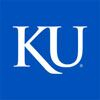
In 1866, University of Kansas welcomed its first class of 55 students to what the school calls “an unfinished building on a treeless ridge called Mount Oread.” Today, the school has five campuses — the Lawrence campus, the Edwards Campus in Overland Park, and medical branches in Kansas City, Wichita, and Salina — serving more than 28,500 students in dozens of schools and departments.
The School of Business at University of Kansas (KU School of Business) offers an AACSB-accredited MBA program that may be completed entirely online. There are no residency requirements. The program consists of 30 credits of core business classes and 12 credits of focus area courses for a total of 42 credit hours. Courses are eight weeks each, and three focus areas are available including Finance, Management & Leadership, and Marketing.
The Finance focus area requires four courses including Advanced Topics in Finance, Corporate Finance, Financial Institutions and Markets, and Investments. Management & Leadership requires Developing Effective Management and Team Skills, Leadership Philosophy and Practice, Managing Internationally, and Strategic Organizational Design and Change Management. The Marketing focus requires Consumer Behavior, Digital and Social Media Marketing, Global Marketing, and Integrated Marketing Communications.
With three start dates per year (spring, summer and fall), the KU School of Business Online MBA may be completed in just over two years.
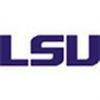
Louisiana State University (LSU) is the highest rated public university in Louisiana. The school is known for graduating students that leave LSU with zero debt and the chance to earn, on average, $12,000 more than those graduating from other universities.
The E.J. Ourso College of Business at Louisiana State University (LSU) is home to the Flores Online MBA Program. This AACSB-accredited MBA is designed for professionals with at least five years of work experience and it offers six start dates annually. Students in the program are required to take 14 courses (42 credit hours) and they may choose elective courses to create a focus. A few options include Negotiation, Persuasion and Influence, and Seminar in New Developments in Business Administration.
There are no residency requirements for the LSU Flores Online MBA and students may complete the program in as few as 18 months.
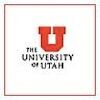
Founded in 1850, University of Utah is the oldest state university west of the Missouri River. When it opened in November 1850 as the University of Deseret, the school’s first term was designated “men only.” Today, nearly half of the students at University of Utah are women. With a student population of nearly 33,000 students enrolled in hundreds of programs in 17 colleges and schools and nearly 100 departments, the school is among the largest in the state.
The David Eccles School of Business at the University of Utah offers an online MBA program that takes 24 months to complete. The 48 credit hour Eccles MBAO program allows students to take two courses at a time, with courses held in five and 10-week blocks. Students will take courses such as Global Business, Data Analysis, Business Ethics, Business Technology, Managing & Leading Organizations, Project Management, and many others.
MBAO classes are available 24/7 and “provide a dynamic, highly interactive learning experience,” says the school. “On-demand lectures with in-depth discussions between team members and faculty using high-end web conferencing means “class is “whenever and wherever” students want it to be. Students also have the opportunity to interact with faculty and other students in a weekly live web-conferencing session, as well as during one three-day on-campus residency. Online forums and multimedia are also utilized in this AACSB-accredited program.
Graduates of the Eccles MBAO report a 34% salary increase by graduation and on average, 56% of students are promoted while in the program.
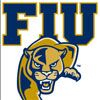
As Miami’s first and only four-year, public research university, Florida International University (FIU) has the highest research classification offered by the Carnegie Foundation for the Advancement of Teaching. The university has earned more than $1 billion during the past decade and it operates the world’s only underwater ocean laboratory—Aquarius. Serving more nearly 54,000 students from 142 countries, FIU is also one of the top 10 largest universities in the nation.
More than 250 programs are offered, including popular majors such as Business, Management, Marketing, and Related Support Services; Psychology; Multi/Interdisciplinary Studies; Social Sciences; and Communication, Journalism, and Related Programs.
The FIU Alvah H. Chapman Jr. Graduate School of Business offers a fully online MBA tailored for busy, working professionals. The program utilizes discussion boards, chat, and email, as well as online e-advising and e-tutoring, and academic coaches. This AACSB-accredited program requires 42 credit hours of study to graduate and students interested in the healthcare industry may choose the Online Healthcare MBA. This program also requires 42 credit hours of study, which may be completed in as few as 18 months.
Students in the Online MBA program nay choose from eight specializations including Business Data Analytics, Entrepreneurship & Innovation, Finance, International Business, Leadership, Marketing Channel Strategy, Real Estate, and Strategic Negotiations. Each specialization consists of two courses (out of the 14 total in the program).
In addition selecting a specialization, students will are required to take three Professional Development Seminars (PDS) during the first quarter of the program. Professional Development - Work Preference Indicator Assessment, Professional Development - Presentation Skills Seminar, and Professional Development - Career Services Seminar. An optional two-day MBA residency in Miami is available and highly recommend. The school says that the residency is “is a great opportunity for students to come to our beautiful campus to meet their professors, the program’s administrators, and network with their peers.”
During the 2-Day Residency, we focus on developing soft, career-enhancing skills. Activities include expert speakers on hot topics, case-method analysis, team-building workshop, etiquette luncheon, and networking events. The Residency is included in tuition.
Depending on factors such as whether students attend full- or part-time, prerequisite requirements, and more, the FIU Online MBA may be completed in as few as 18 to 21 months, or 33 months.
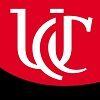
The University of Cincinnati was established in 1819, making it one of the oldest universities in the country. The school UC serves 46,388 students across 14 colleges and it houses one of the countries top three co-op programs. Students in the program “earn a collective $75 million annually working for about 1,300 international employers via their co-op work placements,” says the school “alternating academic semesters with professional, paid work directly tied to their majors with employers like Apple, Boeing, Disney, Fisher Price, HBO, NASA, Nike, P&G, Toyota and hundreds more.”
The Carl H. Lindner College of Business at the University of Cincinnati has been accredited by the AACSB since 1919. The school offers an online MBA program that combines academic study with hands-on learning. The 38 to 48 credit hour program provides core skills in Economics, Marketing, Information Technology, Accounting, and Leadership. Besides the opportunity to earn their degree at an accelerated pace (in as few as 12 months), Lindner Online MBA students have seven online certificate/concentration options including Health Care Administration, Health Care Finance, Health Care Operations, Health Care Policy and Regulation, Marketing, Corporate Taxation, and Individual Taxation.
Each certificate/concentration requires 12 credit hours.

Founded in 1870 as the Colorado Agricultural College, Colorado State University (CSU) is situated on nearly 5,000 acres of land, including the main campus, a foothills campus, an agricultural campus, and a Mountain Campus. Colorado State also has 4,600 acres for research centers, Cooperative Extension offices, and Colorado State Forest Service stations.
Serving around 23,768 undergraduate students and 3,962 graduate students, CSU offers more than 250 academic programs, more than 80 minors, and several professional advising tracks across eight colleges and a graduate school. The College of Business at Colorado State University offers a Professional MBA Program that dates back to 1975 when the first “distance” offering was introduced.
Today, the 40 credit hour program is offered 100% online and it offers the opportunity to focus in one of several areas including Computer Information Systems, Finance, and Marketing Data Analytics. Students may also choose to focus in “Professional Enrichment,” which consists of electives such as International Study Trip (summer) and Contemporary Issues in Business: Leadership Symposium: Building and Leading Exceptional Organizational Teams.
During the optional International Study Trip, students will meet with business leaders, “learning international business culture, and becoming acclimated to environments” different from their own. In addition to the study trip and several focus areas, the CSU College of Business offers a number of unique business certificates to complement the MBA program. Options include Accounting, Ethics and Auditing, Applied Finance, Business Analytics and Accounting Systems, Business Information Systems, Business Intelligence, IT Project Management, Marketing Management, Nonprofit Administration, and Ski Area Management.
Including the focus area and study trip, students can expect to complete the AACSB-accredited online MBA program in as few as 21 months. However, students have the option to take up to five years to complete the program.
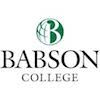
Established in 1919, Babson College opened with just 27 students. Today, the school serves more than 2,350 undergraduate and nearly 1,000 graduate students representing more than 80 countries.
The F.W. Olin Graduate School of Business at Babson grants highly ranked MBA and MS degrees, as well as Certificates. The school also offers an Executive Education program for professionals looking to grow in today’s rapidly evolving business environment and Babson Global works with corporate, university, government, and foundation partners to advance entrepreneurship education and Entrepreneurial Thought and Action® worldwide.
The F.W Olin MBA has a blended learning option that combines online classes, face-to-face sessions at Babson’s campus in Wellesley, MA, Miami, San Francisco, and Dubai, and virtual collaboration with students from around the world. Students in the program will develop the skills and knowledge needed to “understand how to take action, learn, and build in the ever-changing global business landscape,” says the school.
Students will also learn how to apply “classroom knowledge to real-world business problems in leading organizations of all types and sizes,” before they graduate.
The Olin Online MBA takes just 21 months to complete, full-time. The program is AACSB-accredited.
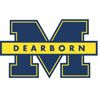
University of Michigan-Dearborn (UM Dearborn) was founded in 1959 with a gift of just over 200 acres of land and $6.5 million from the Ford Motor Company. Since registering its first class of 34 students, the school has set new enrollment records annually since 2014. Currently, the school serves 7,185 undergraduate, 2,191 graduate, and 92 doctoral students enrolled in more than 200 programs in four colleges.
The College of Business at University of Michigan-Dearborn offers several MBA programs that may be completed 100% online, on-campus, or a combination of the two. Programs include an MBA with a concentration, the MBA/MS in Finance, and the MBA/MSE-ISE (MBA/MS in Engineering, Industrial Systems Engineering).
Concentrations for the MBA are optional and include Accounting, Finance, International Business, Management Information Systems, Marketing, and Supply Chain Management. Per the school, MBA students can complete the concentrations in Finance and International Business online, or they can take online elective courses, instead.
Students who choose the hybrid option will have full access to campus-based resources and they will participate in face-to-face events, such as professional organizations and study-abroad opportunities.
The AACSB-accredited online MBA requires 36 to 48 credit hours of study, and it may be completed within two to two-and-a-half years. Admission is rolling, so students may begin the program in September or January. May admission is also usually possible for part-time students.
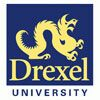
Founded in 1891 in Philadelphia, Drexel University has three Philadelphia campuses and other regional sites. The school is home to The Academy of Natural Sciences of Drexel University—the nation’s oldest major natural science museum and research organization, and it has international research partnerships including China and Israel.
Drexel Online is one of the oldest and most successful providers of online degree programs in the U.S. Through Drexel Online and the LeBow College of Business, students can earn an online MBA that the school says is a “highly customizable degree” designed to equip students with “problem-solving and leadership skills that can be applied across a variety of different industries.” The 49 credit hour AACSB-accredited program “is organized into four 10-week quarters per year (as opposed to the traditional two semester system), which means you can take more courses in a shorter time period,” says the school. Sample courses include Managing and Leading the Total Enterprise, Leading Dynamic Environments, Corporate Financial Management, Legal Options in Decision Making, and Business Problem Solving.
LeBow Online MBA students may customize their learning experience to their interests and career goals through concentrations, graduate minors, and dual degree programs. All students may take advantage of multiple networking opportunities and residency options, as well as portfolio projects and case simulations. In addition, any of the online business degrees can be paired as a dual degree such as MBA/MS Business Analytics, MBA/MS Sport Management, or MS Business Analytics/MS Sport Management, with shared coursework usually through elective credits.
The Drexel LeBow Online MBA may be completed in few as 18 months or up to five years.
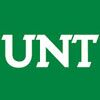
Serving nearly 39,200 students, the University of North Texas is one of the state’s oldest and largest universities. The school offers 106 bachelors, 88 masters, and 36 doctoral degrees across 14 Colleges and Schools. The College of Business (CoB) here offers an accelerated MBA that may be completed 100% online in just 14 months.
This AACSB-accredited program has six specializations including Marketing, Marketing Analytics, Organizational Behavior and Human Resource Management, Strategic Management, Supply Chain Analytics, and Supply Chain Management.
Courses for UNT’s accelerated MBA programs are offered in eight-week sessions and the curriculum is identical to the school’s traditional MBA program. Students can expect to take 18 hours in the MBA core, 15 hours in the concentration, and three elective hours, for a total of 36 credit hours. Course highlights include Administrative Strategy, Discovery and Learning with Big Data, Large Data Visualization, Managing Organizational Design and Change in Financial Management, and Organizational Behavior Analysis.
Depending on the specialization, students will also take seminar courses such as Seminar in Business Ethics and Social Responsibility, Seminar in Compensation and Motivation, and Seminar in Labor Relations.
The MBA program at UNT offers five start dates annually including January, March, June, August and October.
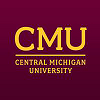
Central Michigan University (CMU) is among just five percent of U.S. universities in the highest two Carnegie research classifications. Serving 21,705 students, the school offers approximately 300 programs at the undergraduate, masters, specialist, and doctoral levels across seven colleges.
The Central Michigan University Global Campus (CMU Global Campus) and College of Business Administration (CBA) offer an online MBA program that features several emphasis areas including Human Resource Management, Logistics Management, Marketing, Value-Driven Organization (VDO), and ERP Emphasis Using SAP Software. SAP is the world's largest enterprise applications software company, with a wide range of software used by more than 38,000 firms in over 120 countries. The ERP Emphasis/SAP is a 40 credit hour program that requires a two-week face-to-face SAP Academy.
Depending on the area of concentration, MBA students may have to take anywhere from 36 to 43 credit hours to complete the program. The online MBA program at CMU Global Campus is AACSB-accredited.

Temple University is a public, four-year research university in Philadelphia. Founded by Russell H. Conwell in 1884, the school’s official motto is “Perseverantia Vincit” or Perseverance Conquers. Serving more than 40,000 students, Temple offers more than 200 programs across 17 colleges and schools.
Fox School of Business at Temple offers a 48 credit hour online MBA program known as the “Fox OMBA.” Students in the program use a combination of “leading-edge virtual technology,” says the school, as well as “HD video presentations, and web conferencing technology to engage in course activities in any environment and at their own pace.” While coursework for the program is available entirely online, students must attend one weeklong residency, which is held at the school’s main campus. Students must also “attend” live weekly classes held through WebEx. This gives students the opportunity to meet classmates and faculty in an environment that allows them to “speak with and see one another.”
Online concentration options for the Fox OMBA include Business Management, Corporate Compliance, Governance and Regulatory Policy, Entrepreneurship, Financial Management, Human Resource Management, Innovation Management, Marketing Management, Sport Business, Strategic Management, Supply Chain Management, and Travel & Tourism. These online concentrations require nine of students’ 12 elective credits. Students in pursuit of a general MBA degree may choose nine credits of any elective course.
Even with a concentration, many FOX OMBA students complete this AACSB-accredited program in as few as 20 months or up to six years, utilizing the schools flexible “hop-on, hop-off curriculum carousel.” Each student can expect to spend approximately 10-20 hours each week on coursework. The program culminates in an Enterprise Consulting Practicum (Capstone), worth three credits.
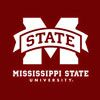
Mississippi State University is a comprehensive, doctoral degree-granting institution that holds the Carnegie Foundation for the Advancement of Teaching’s designation as a Doctoral/Extensive institution. As the state’s leading research university, the school serves 22,000 students enrolled in hundreds of programs across five colleges.
The College of Business at Mississippi State University offers a 30 credit hour fully online MBA and a 33 credit hour online MBA with a focus in Project Management. Online MBA courses emphasize Management, Marketing, Finance, Economics, Business Information Systems, and Quantitative Analysis. Both AACSB-accredited programs offer enrollment in fall, spring, or summer and they typically take two years to complete. However, students who have completed all undergraduate prerequisites can finish either program in as few as 18 months. Prerequisite courses are also available online.

On February 8, 1693, King William III and Queen Mary II of England signed the charter for a "perpetual College of Divinity, Philosophy, Languages, and other good Arts and Sciences" to be founded in the Virginia Colony. With original plans for the school dating back to 1618—decades before Harvard—W&M is the second-oldest institution of higher learning in America. A 17-year-old George Washington received his surveyor's license through W&M and would later return as its first American chancellor, Thomas Jefferson received his undergraduate education here, as did presidents John Tyler and James Monroe.
The Raymond A. Mason School of Business at W&M offers a 49-credit online MBA program for working professionals. This interdisciplinary program consist of 12 courses. Each course is 7.5 weeks, with just 22 students per course. Students begin the program with the unique Renaissance Manager course.
The course explores “design thinking as an iterative approach to identifying and solving problems, the importance of both deep expertise and broad knowledge, understanding systemic connection as a part of creative problem-solving, how a willingness to experiment promotes a growth mindset, the ability to synthesize new ideas from seemingly unrelated or opposing ideas,” and more, says the school. Other course highlights include Global Managerial Economics, Integrated Technology, Leadership for the 21st Century, Revolutionary Leader Practicum, and Strategy.
Students will attend just one on-campus residency. This Friday thru Sunday event includes speakers, team-building activities and networking functions and students will have the opportunity to “discuss core business topics such as leadership, finance and marketing, as well as current events and global issues.” Students will meet the school’s Executive Partners (EPs), “a select group of retired professionals who volunteer their time as mentors to all Mason School of Business students.” Students can expect to complete the AACSB-accredited Mason Online MBA in just two years.

Established in 1876, the Texas A&M University System is one of the largest systems of higher education in the nation. Through a statewide network of 11 universities, a comprehensive health science center, eight state agencies, and the RELLIS Campus, the Texas A&M System educates more than 153,000 students and makes more than 22 million additional educational contacts through service and outreach programs each year.
Founded in 1910 and serving more than 10,000 students, West Texas A&M University (WTAMU) is a member of the Texas A&M University System. The school joined the System in 1990 and today it offers 60 undergraduate degree programs, 38 masters, and two doctorate programs across seven colleges and schools.
The Paul and Virginia Engler College of Business at WTAMU offers a 31 to 46 credit hour MBA program that may be completed entirely online or through a combination of online and campus courses. Students may choose the General MBA or add an optional emphasis area such as Computer Information Systems, Healthcare Management, Management, or Marketing.
Courses for the program are divided into multiple topic areas that cover accounting, quantitative analysis, computer application and technology, corporate finance, marketing, economic theory, management, business integration, and international business. Course highlights include Accounting in Health Care Organizations, Cultural Intelligence, Financial Management of Biotechnology and Health Care, International Human Resource Management, and Social Network and Media Analysis. All students will complete the MBA Portfolio Capstone course worth one credit hour.
The AACSB-accredited Engler Online MBA may be completed within a two-year period. However, some students have completed the program in as few as 12-18 months.
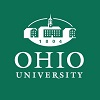
Ohio University was established in 1804 as the state’s first university. Serving more than 17,900 23,000 students at the Athens campus, the school offers 250 academic programs across 20+ colleges and schools.
The College of Business at Ohio University offers an AACSB-accredited MBA program that may be completed entirely online. There is no GMAT requirement for admission and students may choose from eight concentrations including Accounting, Business Analytics, Business Venturing & Entrepreneurship, Executive Management, Finance, Health Care, Operations and Supply Chain Management, and Strategic Selling & Sales Leadership.
Course highlights include Accounting for Executives, Applied Business Experience (CAPSIM), Descriptive Analytics, Organizational Behavior and Human Resource Management, and Strategic Use of Information. In the CAPSIM course, “students will work in teams and apply course material to complete simulated business experience,” says the school. In the simulation, each team runs a fictitious firm.
Students “will define a business problem to address, assess the organization and its context, suggest solutions, and deliver an action plan for implementing the solution. Teams compete with one another in a dynamic industry environment.” The CAPSIM course “provides an opportunity to apply many of the concepts learned throughout the program.”
The MBA program at Ohio University may be completed in just two years, full-time.

Founded in 1894, University of Massachusetts at Lowell (UMass Lowell) is a top 200 national public research university serving 18,000 students enrolled in 175+ bachelors, masters and doctoral degrees in six colleges. The Robert J. Manning School of Business offers an online MBA with nine concentrations. Concentrations are optional and include Accounting Business Analytics, Entrepreneurship, Finance, Healthcare, Information Technology, International Business, Managerial Leadership, and Marketing. If a student does not select a concentration, they will earn the General MBA.
The Manning MBA program consists of 12 credit hours of prerequisites (six courses – two credits each – eight weeks), the required advanced core 21 credit hours (seven courses at three credit hours each), and nine credit hours of electives (three courses at three credit hours each) for a total of 42 credit hours. Course highlights include Accounting Information for Management Decisions, Analysis of Customers and Markets, Global Enterprise and Competition, Managing Organization Design and Change, and Strategy Formulation and Implementation.
Courses for this AACSB-accredited program are offered in the fall, spring, and summer semesters. A minimum full-time course load is considered to be nine credits. Full-time students usually complete their degree requirements in two years. Part-time students must complete their degree requirements within five years. Graduates of the program enjoy a high ROI. University of Massachusetts at Lowell ranks 29th in ROI in the nation among public research universities.
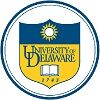
University of Delaware (UD) traces its roots to 1743 when a petition by the Presbytery of Lewes expressing the need for an educated clergy led the Rev. Dr. Francis Alison to open a school in New London, Pennsylvania. In addition to being one of the oldest universities in the nation, UD has been named a Best Value School; it has the No. 1 Physical Therapy graduate program in the U.S., and more than 130 patents have been issued and 26 start-ups created through UD research since 2009.
Serving 24,120 students, University of Delaware offers hundreds of programs across eight colleges. The Alfred Lerner College of Business and Economics offers an AACSB-accredited MBA that may be completed entirely online in as few as 16 months. A hybrid option is also available. The program has five concentrations including Business Analytics, Finance, Healthcare Management, International Business, and Strategic Leadership. Students in the program may combine multiple concentrations (two or more) to “gain greater flexibility in the job market,” says the school and “stand out from the crowd.”
A customized option is also available for students seeking a concentration in another area. Students who choose this option may tailor the degree by selecting the electives that match their personal career needs. The MBA with one concentration consists of 44 credits, a dual concentration consists of 47 credits, and a triple concentration is 53 credits. All students will take core online MBA courses such as Corporate Strategy, Ethical Issues in Domestic and Global Business Environments, and Managing People, Teams and Organizations.
Other Lerner MBA highlights include intensive, 7-week courses, access to a personal career coach and career workshops, GMAT and fee waivers for qualified applicants, and six start dates per year. Students also benefit from partnerships with JPMorgan Chase, Bloomberg and KPMG, among others, along with a network of 30,000 alumni around the country and across the world.
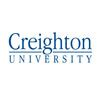
Creighton University is one of 27 Jesuit colleges and universities in the United States. Founded in 1878, the school serves 8,910 undergraduate, graduate and professional students enrolled in degrees and certificate programs in more than 160 areas. More than 40 graduate degree programs are also available and programs are offered across nine schools and colleges.
Heider College of Business offers an MBA program that can be completed in just over two years. Three delivery options are available including completion of courses online, on campus, or a combination of the two. This 33 credit hour program offers several MBA concentrations, the option to add a graduate certificate or a dual degree in addition to the MBA. Concentrations include Accounting, Business Intelligence and Analytics, Financial Psychology & Behavioral Finance (also a certificate), Finance, Leadership, and Personal Financial Planning (also a certificate).
Other certificate options include Business Analytics, Healthcare Management, Negotiation & Conflict Resolution, Organizational Leadership, and Project Management. Students can combine numerous degrees with the MBA. Just a few include MBA + Law, MBA + PharmD, MBA + MS in Investment Management & Financial Analysis.
Graduates of the AACSB-accredited Heider Online MBA Program have gone on to pursue careers at numerous Fortune 500 companies such as ConAgra Foods, Mutual of Omaha, TD Ameritrade, Union Pacific, and others. Job titles of recent graduates include CEO, Finance Manager, Marketing Manager, Operations Manager, President, Project Manager, and Vice President.

